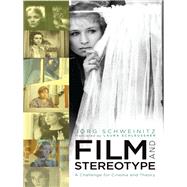- ISBN: 9780231151498 | 0231151497
- Cover: Paperback
- Copyright: 5/31/2011
Since the early days of film, critics and theorists have debated the value of formula, clich#xE9;, conventional imagery, and recurring narrative patterns of reduced complexity. The high noon showdown or last-minute rescue, the lonely woman standing in the window or two lovers saying goodbye in the rain-many films rely on these scenes, and audiences have come to expect them. Outlining a comprehensive theory of film stereotype, a device as functionally important to film narrative as it is problematic, J#xF6;rg Schweinitz builds an overlooked critical history from the 1920s to today. Drawing on theories of stereotype in linguistics, literary analysis, art history, and psychology, Schweinitz identifies the major facets of film stereotype and articulates the positions of theorists in response to the challenges posed by stereotype. He reviews the writing of Susan Sontag, Roland Barthes, Theodor W. Adorno, Robert Musil, B#xE9;la Bal#xE1;zs, Hugo M#xFC;nsterberg, and Edgar Morin, and he brings to light less prominent writers, such as Ren#xE9; F#xFC;l#xF6;p-Miller and Gilbert Cohen-S#xE9;at, and traces the evolution of the discourse into a postmodern celebration of the device. Through detailed readings of specific films, Schweinitz also maps models for adapting and reflecting stereotype, from early ironic (Alexander Granowski) and conscious rejection (Robert Rossellini) to critical deconstruction (Robert Altman in the 1970s) and celebratory transfiguration (Sergio Leone and the Coen brothers). His history, which won the prestigious Geisteswissenschaften International award, reveals the role of film stereotype in shaping processes of communication and recognition, as well as its function in developing media competence beyond cinema.






